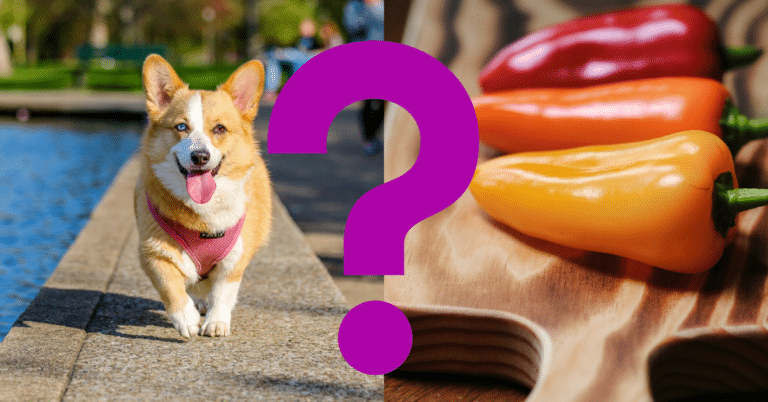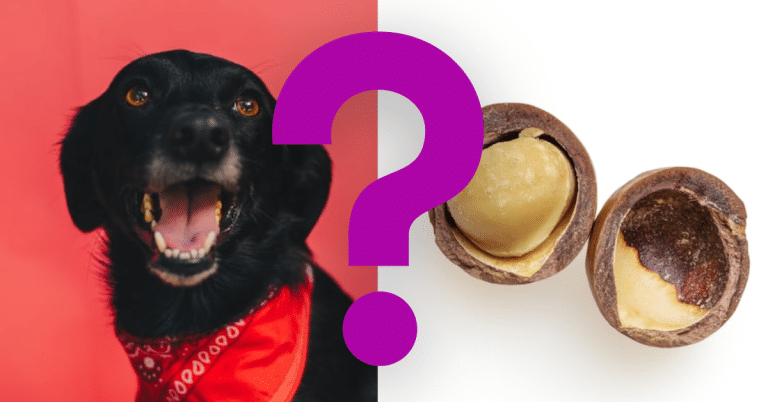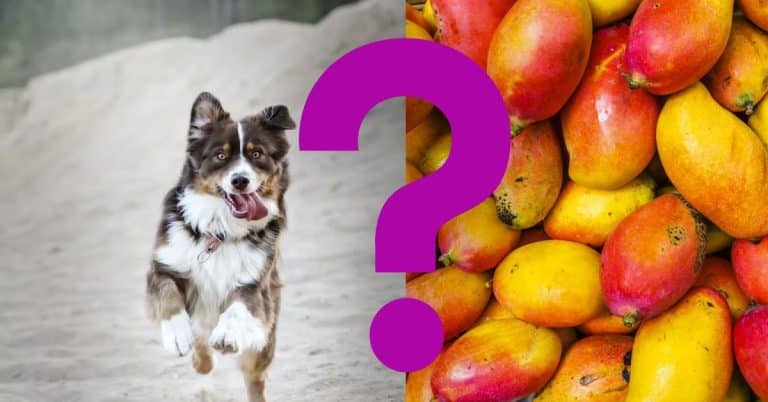Can Dogs Eat Kale? A Vet’s Opinion

Kale contains a lot of compounds, but can you feed Kale to your dog?
Yes, dogs can eat Kale, but only in moderation and with proper preparation. Kale is a leafy green vegetable high in vitamins, minerals, and fibre that, like people, can provide some health benefits to dogs.
Benefits Of Kale For Dogs
Yes, when served in moderation and properly prepared, Kale can provide some health benefits to dogs. Here are some of the potential benefits of Kale for dogs:
- Kale is high in vitamins A, C, and K and minerals like calcium, iron, and potassium, which can help dogs’ general health. These nutrients can assist in building healthy bones, teeth, and eyes, support the immune system and give antioxidants to combat cellular damage.
- Fibre: Kale is strong in dietary fibre, which can help dogs digest and have regular bowel movements. Adequate fibre intake can also aid in weight management by generating a sense of fullness, which may benefit overweight dogs.
- Low in calories: Kale is a low-calorie vegetable that can help dogs try to lose weight. It can be used as a low-calorie and nutritious treat alternative for dogs who need to monitor their weight.
- Kale includes antioxidants such as carotenoids and flavonoids, which can assist the body in neutralizing damaging free radicals and strengthening the immune system. Antioxidants can also aid in reducing inflammation and may have anti-cancer capabilities.
- Kale’s fibrous texture can assist in enhancing dental health in dogs by cleaning their teeth and massaging their gums while they chew on it. It should be noted, however, that Kale should not be used in place of regular dental care, such as brushing your dog’s teeth and providing appropriate dental chews.
- Eye health: Kale is high in vitamin A and lutein, which are necessary for dogs to have healthy eyesight. These nutrients can help with overall eye health and may be especially good for senior dogs or breeds prone to eye problems.
- Immune support: Kale’s high vitamin C content can aid in supporting a dog’s immune system, which is crucial for overall health and disease prevention. A robust immune system can help dogs fight infections, viruses, and other disorders.
- Anti-inflammatory properties: Kale includes anti-inflammatory phytonutrients such as kaempferol and quercetin. These substances may help reduce dog inflammation, benefiting dogs suffering from inflammatory disorders like arthritis.
- Detoxification assistance: Kale is high in chlorophyll, which helps the body’s natural detoxifying processes. Chlorophyll can aid in the removal of toxins from the body and promote healthy liver function in dogs.
- nutritional variety: Feeding various foods, including Kale, can help dogs get various nutrients and avoid nutritional monotony. Incorporating Kale into a dog’s diet in moderation can help him maintain a balanced and diverse diet, improving his overall health and well-being.
It’s crucial to note that Kale should be offered to dogs in moderation and properly prepared, as too much or inappropriate preparation might cause stomach discomfort or other health problems. Always check your veterinarian before changing your dog’s diet, including adding Kale or any other human food, to confirm it’s safe and acceptable for your specific dog.

How To Safely Give Kale To Dogs?
To feed Kale to your dog safely, follow these guidelines:
- Wash thoroughly: Thoroughly rinse the Kale leaves to remove any dirt, debris, or pesticides on the leaves.
- Chop the Kale into small, manageable pieces, removing rough stems that could pose a choking hazard.
- Cook (optional): While raw Kale is typically safe for dogs, heating kale can help break down some of the oxalates and make it simpler for dogs to digest. To soften the Kale before feeding it to your dog, briefly steam or blanch it, but avoid overcooking as this may result in nutrient loss.
- Feed sparingly: Kale should be provided to dogs in small amounts as a treat or as an addition to their usual meal. Large amounts of Kale should be avoided as they may induce intestinal problems.
- Kale can be combined with other dog-friendly foods for a balanced and varied diet. You can combine it with other veggies, fruits, or meats to make a well-rounded diet for your dog.
- Avoid flavours and additions: When giving Kale to dogs, do not add any seasonings, sauces, or additives. Ingredients poisonous to dogs, such as garlic, onions, or excessive salt, should be avoided.
- Monitor for inadequate responses: Watch for any pain symptoms or adverse reactions after feeding your dog kale. Stop feeding Kale and visit your veterinarian if you experience vomiting, diarrhoea, or other indicators of digestive discomfort.
- Consider your dog’s requirements: Remember that dogs are different, and some dogs may be sensitive to Kale or other components. Consult your veterinarian before giving Kale to your dog if they have a history of food allergies or sensitivities.
- Veterinary examinations regularly: Before modifying your dog’s diet, including adding Kale or any other human food, always consult your veterinarian. Your veterinarian can make personalized nutritional suggestions for your dog based on their needs, health status, and dietary preferences.
Following these rules, you can safely integrate Kale into your dog’s diet as an occasional treat or supplement to their regular meals. However, it’s always better to visit your veterinarian to see if Kale is right for your dog, as nutritional recommendations might differ depending on your dog’s age, size, breed, health, and other factors.
Will Kale Make A Dog Sick?
If fed in large quantities or if the dog has particular sensitivity, Kale may cause stomach discomfort or other health difficulties. Kale contains oxalates, which can bind to calcium and form crystals, perhaps leading to the bladder or kidney stones in dogs with a history of urinary difficulties or breeds predisposed to stone formation. However, when provided in moderate doses, Kale’s risk of oxalate-related concerns is generally low and is unlikely to cause problems in healthy dogs with appropriate kidney function.
In addition to oxalates, kale can be difficult for certain dogs to digest, especially when offered raw or in excessive amounts. It may induce gas, bloating, diarrhoea, or other digestive distress. Cooking Kale makes it easier to digest. It’s also important to know that, like any other food, some dogs may have individual food sensitivities or allergies to Kale and may develop adverse reactions such as itching, rashes, or gastrointestinal difficulties.
Kale should be fed to dogs in moderation as an occasional treat or as part of a balanced diet. Feeding high amounts of Kale or making it a staple in your dog’s diet might lead to nutritional imbalances. Kale preparation is particularly vital since unwashed Kale may contain dirt, debris, or pesticides that can cause gastric discomfort in dogs. Additionally, while feeding Kale to dogs, avoid adding condiments, sauces, or other additives, as these can contain hazardous substances. As with any food, incorporate Kale gradually into your dog’s diet and monitor for any inadequate responses. Stop eating Kale and visit your veterinarian if you observe any signs of stomach discomfort or other health problems. Your veterinarian can make tailored recommendations based on your dog’s specific needs, health status, and dietary needs.

Vet’s Summary
In conclusion, Kale can be provided to dogs in moderation as a treat or addition to their diet, but it’s vital to be aware of the potential hazards. Kale contains oxalates, which may produce bladder or kidney stones in dogs with a history of urinary difficulties or breeds prone to stone formation. Due to the rough texture of Kale, some dogs may have stomach discomfort, mainly if served uncooked or in large quantities. Furthermore, some dogs may have kale sensitivity or allergies.
When feeding Kale to dogs, make sure to carefully wash it to remove any dirt, debris, or pesticides, and avoid seasonings or chemicals that may be hazardous to dogs. Proper preparation, such as cooking, can make Kale more digestible for dogs. Kale should be fed in moderation to avoid imbalances in dogs’ overall diets, as it should not be a main meal. It is crucial to note that dog probiotics are helpful bacteria that support digestive health, but they should not be used as a substitute for a balanced and healthy diet for dogs. When fed in moderation in a balanced diet, Kale may help dogs’ overall gut health because it provides fibre and elements that support digestive function. However, before introducing any new food, including Kale or probiotics, into your dog’s diet, always consult a veterinarian, especially if your dog has a history of digestive difficulties or other health concerns. Based on your dog’s specific needs and health situation, your veterinarian can provide personalized advice and counselling.
Videos To Watch
Here are some videos to help you understand whether to feed your dog kale. Watch them and find out:






